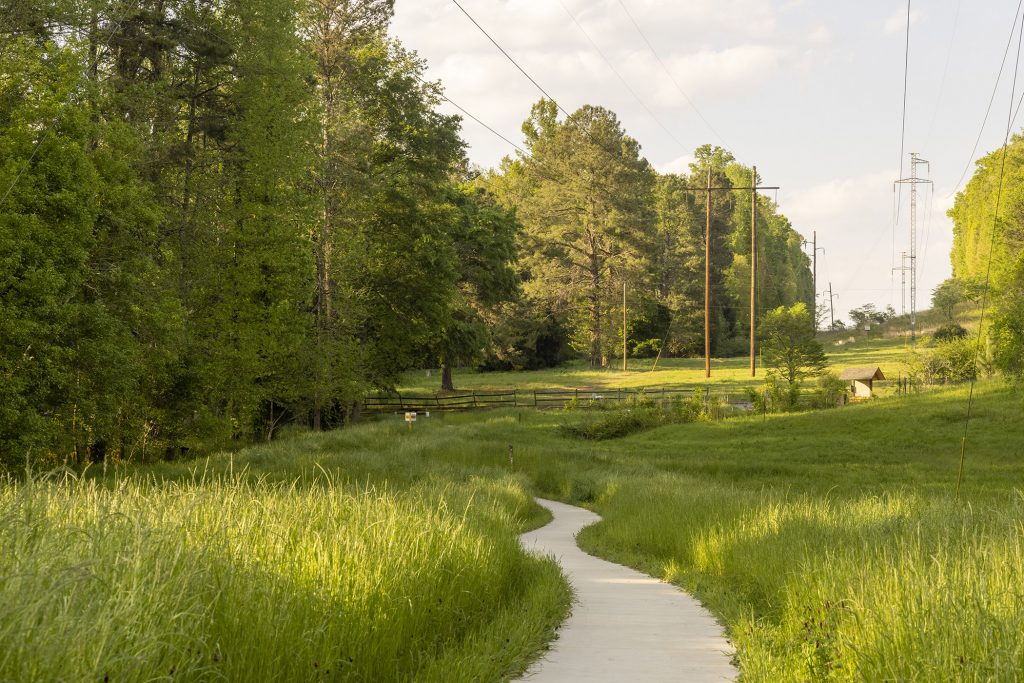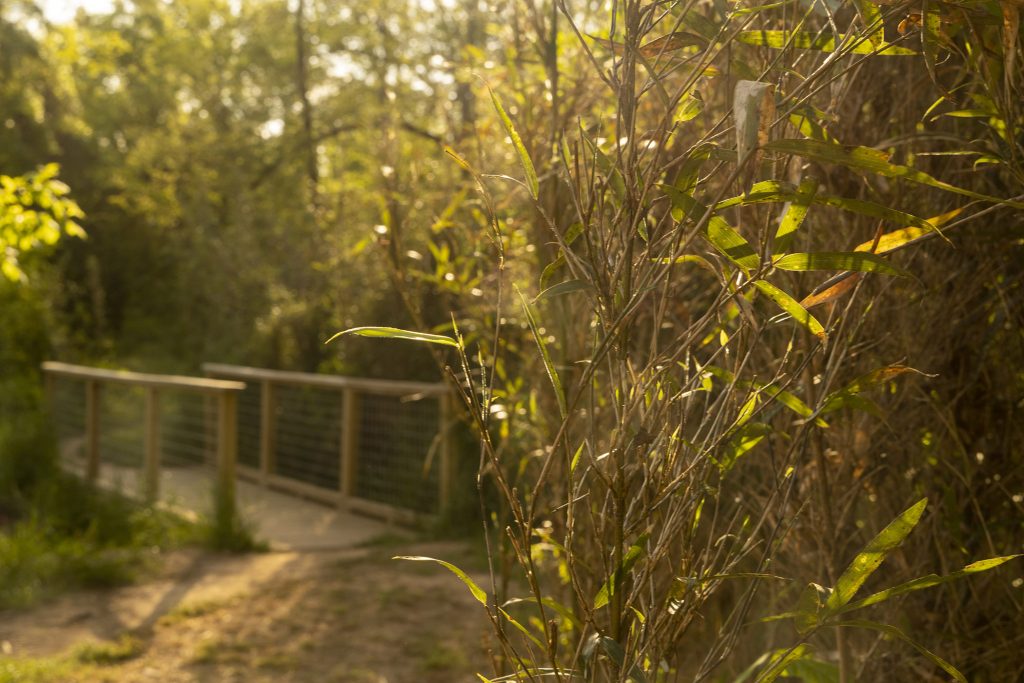The State Botanical Garden of Georgia serves diverse needs within the Athens community.
Many community members have found refuge in the garden’s trails and outdoor activities this past year. Prior to the pandemic, the garden’s grounds served as the backdrop for weddings and special events. And local families know the garden as a fun field trip location or a source for home-school materials.
But staff and researchers at the State Botanical Garden know their jobs come with a mission that extends beyond the garden’s 313 scenic acres. One of those missions is restoring native ecosystems in Athens-Clarke County and beyond.
“Native plants support larger and more diverse populations of insects, which are essential to birds and amphibians, and all the way up the food chain,” said Jim Affolter, Larry R. Beuchat Professor in the Department of Horticulture in the UGA College of Agricultural and Environmental Sciences, and director of science and conservation at the State Botanical Garden.
Land development and reforestation have forced many native species to the brink of extinction, such as Georgia aster, dwarf sumac and smooth coneflower. The State Botanical Garden, a UGA Public Service and Outreach Unit, is removing invasive species in Athens and reintroducing native plants through three restoration projects, funded in part by the federal Institute of Museum and Library Services.
The projects focus on restoring the garden’s floodplain region, supporting the growth of a new pocket prairie and reintroducing river cane, a high priority bamboo species native to the Southeastern United States. Visitors can see these projects in action along the Middle Oconee River and in areas near the power line that runs through the center of the garden.

The Botanical Garden’s newly paved, ADA accessible trail leads to the river overlook. (Photo by Dorothy Kozlowski/UGA)
The garden is also working to improve the local native plant landscape through programs like Connect to Protect. The Connect to Protect program partners with communities to build pollinator-friendly gardens that feature native plants and educational materials in urban and suburban landscapes.
“You don’t need a large area for these gardens,” Affolter said. “On a small patch of ground, especially in cities, you can grow them to support local plants and insects.”
You can find Connect to Protect gardens at the intersection of Washington Street and College Avenue in downtown Athens, at Oconee Veterans Park and in several school districts including the Clarke County School District (CCSD).
The garden also offers workshops, lectures, hands-on training and educational tours in partnership with organizations such as the nonprofit Center for Plant Conservation, the Georgia Department of Natural Resources and CCSD.
Want to help create a thriving ecosystem in your own backyard? Here are a few resources offered by the State Botanical Garden:
- Order perennials, annuals, shrubs, trees and other native plants through the garden’s online spring plant sale.
- Learn more about how to support local conservation efforts by earning a Certificate in Native Plants.
- Read more about Connect to Protect community gardens and consider replicating these projects in your area.
- Nominate your favorite plant and help grow winning plants through the Georgia Pollinator Plants of the Year Program.
- Volunteer through the Athens Area Master Gardener Extension Volunteer Program to learn about horticulture principles, practices and pest management from UGA experts.
Visit the State Botanical Garden of Georgia website to find out more about the garden’s conservation and preservation efforts.
For gardeners—and for those who simply appreciate spending time outdoors—the garden welcomes visitors throughout the year. Community members can also enjoy the trails and nature areas, explore the gardens and schedule guided tours.
